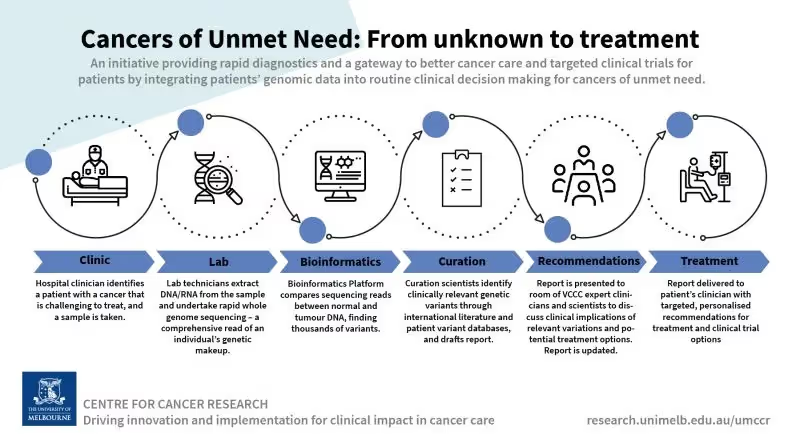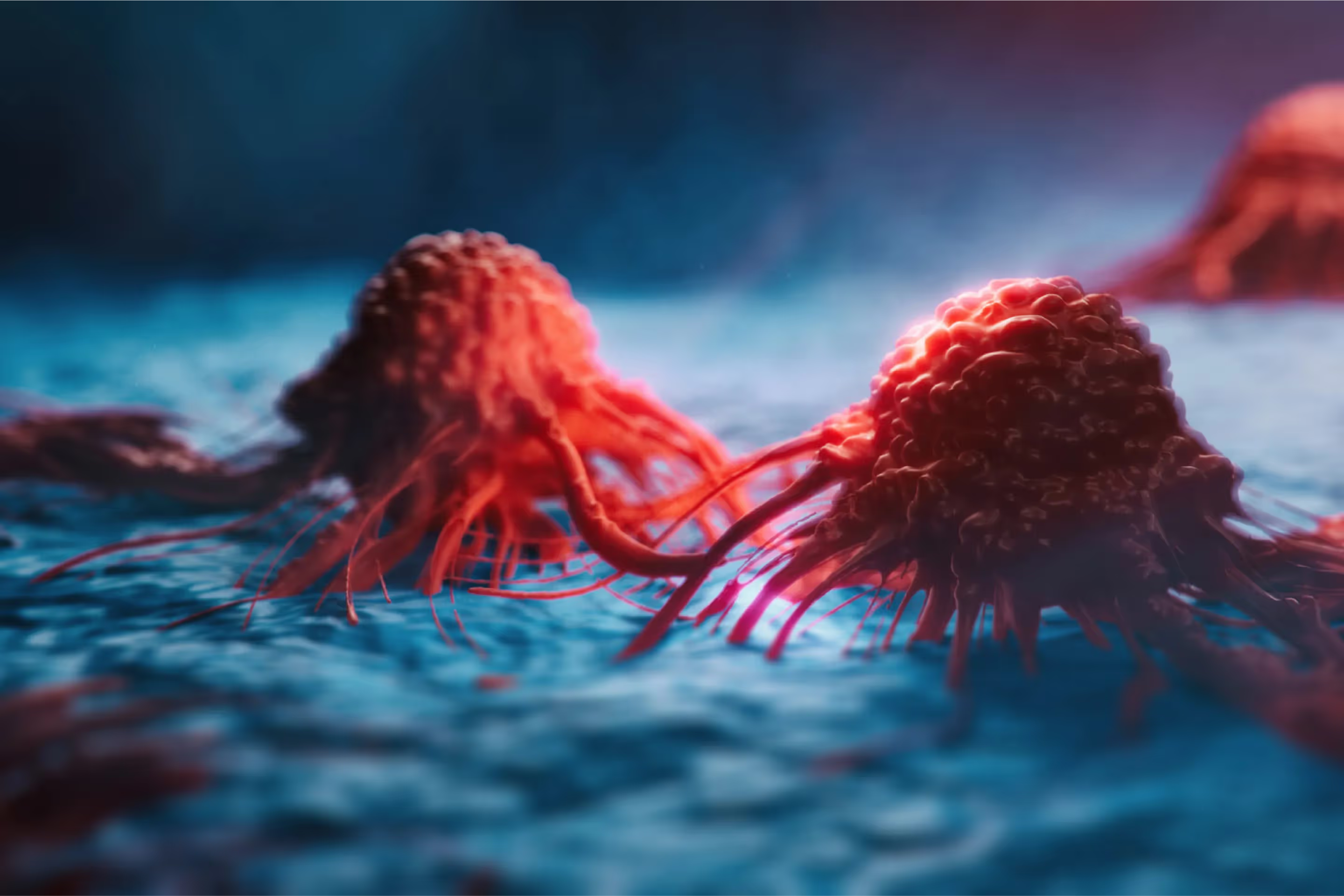The Cancer of Low Survival and Unmet Need (COLUMN) Initiative aimed to improve diagnosis and provide more targeted and effective treatments for rare and challenging cancers.
Led by Professor Sean Grimmond, the Initiative provided real-time genomic testing for patients with challenging to treat cancer cases including rare or aggressive tumours; those resistant to standard therapies; or those that are traditionally difficult to diagnose.
The Initiative brought together research, industry, clinicians and patients and demonstrates the power of collaboration in delivering tangible patient benefits.
The initiative sequenced over 840 cancer patients, resolving ambiguous diagnosis, allowing optimal clinical decision making, and access to reimbursed drugs. It also on-ramped eligible patients onto targeted clinical trials, through collaborative programs within the Melbourne Biomedical Precinct.

What is a cancer of unmet need?
A cancer of unmet neeed, or rare cancer, has less than 6 incidences per year per 100,000 population, and a less common cancer has an incidence rate between 6 and 12 cases per 100,000 persons (Rare Cancers Australia). It is estimated that 42,000 people are diagnosed with a form of rare or less common cancer in Australia every year (Cancer Australia, 2019).
These are rare or aggressive tumours, those resistant to standard therapies, or those that are difficult to diagnose. This includes cancers such as bone, pancreatic or brain cancer.
These cancers present a clinical conundrum. They are often beyond the standard of care; can have enigmatic diagnosis, with ambiguous prognosis or tissue of origin; and are evolved, resistant to treatment, and prone to relapse.
These classes of cancers have not seen the improved outcomes of many of the more common types of cancer. In 2015, around 1 in 3 people diagnosed with cancer were diagnosed with a rare or less common cancer; for the same year these cancers accounted for just under 1 in 2 cancer-related deaths (Australian Institute of Health and Welfare).
